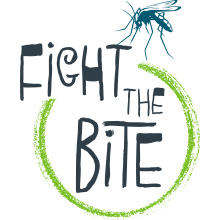What are Mosquitoes?
Mosquitoes are small insects belonging to the fly family.
Mosquitoes usually lay 100-400 eggs at a time in still water. The female mosquito is the one that bites, as she needs blood to make her eggs.
A mosquito bite usually results in a reaction including swelling, redness, and itchiness, and can vary from mild to severe.
Although mosquitoes can bite at any time of day, they are most active between dusk and dawn (Government of Canada, 2016).

What are the health risks?
There are many health risks related to mosquito bites. There are no vaccines for many of the diseases that mosquitos can spread, so it is important to protect yourself.
Some of the diseases transmitted by mosquitoes are:
- West Nile Virus
- Zika Virus
- Chikungunya
- Eastern Equine Encepahilitis Virus
- Malaria
- Dengue Fever
How can I minimize my risk?
- Limit outdoor activities, especially between dusk and dawn from May to September. (But remember, mosquitoes can bite at any time of day, so always protect yourself).
- Wear loose, light-coloured long sleeved shirts and pants with tight woven material.
- Check and fix house screens on windows and doors to keep mosquitoes outside.
- When vacationing, stay in well-screened, air-conditioned buildings, and sleep with a treated mosquito net.
- Before traveling to high- risk areas, stop by a travel health clinic and visit the Public Health Agency of Canada’s website for Travel Health Notices.
- Use repellent:
- DEET:
- Safe when used in correct concentrations, depending on the user’s age. (Government of Canada, 2016)
- 6 months to 2 years: up to 10%, don’t apply more than once a day.
- 2 to 12 years: up to 10%, can reapply up to three times daily.
- 12+ years: up to 30%.
- Note:
Less than 6 months: don’t use DEET products (use a mosquito net).
Less than 12 years: don’t use DEET daily for more than a month.
- Icaridin:
- Should not be used on children younger than 6 months old.
- Permethrin:
- Do not use directly on skin, ONLY for use on clothing and netting. Although not available in Canada, travel health clinics can provide you with information on how to purchase some before travelling.
- DEET:
What do I do if I have been bitten?
Most mosquito bites heal by themselves in a few days. The most common concern is controlling the itch, especially since scratching can cause infection. Ways to reduce the itch are:
- Cool compress.
- Topical creams like calamine lotion, non-prescription hydrocortisone cream.
- Oral non-prescription antihistamine (Talk to your health care provider or pharmacist before taking or using any medications).
If any concerning symptoms appear after being bitten, or travelling (e.g., fever, rash, headaches, red eyes), contact your health care provider immediately.
What should I do about “standing water” (water that does not move)?
It is important to remove any standing water on your property. Mosquitoes use standing water to lay eggs.
- Remove standing water around your home (e.g., bird baths, flower pots , eavestroughs/gutters).
- Keep pools clean and chlorinated, and aerate ornamental ponds.
- Cover rain barrels with screens
- Keep wheelbarrows and plastic wading pools turned over when they aren’t being used.
- For water that cannot be emptied or changed (e.g., ponds), use an approved mosquito larvicide (look for a Pest Control Product (PCP) number) that either kills larvae or stops development.
- Keep grass cut.
Who should I call about “standing water” on someone else’s property?
If you have a standing water complaint, please contact your municipality.
How can the mosquito population be controlled?
Natural predators like fish, frogs, and birds, eat mosquitoes and help to keep them under control. Pest control agencies can also spray small areas with pesticides (called fogging) to help reduce the number of mosquitoes.
To reduce the mosquitoes around your home:
- Remove standing water around your home (e.g., bird baths, flower pots, eaves troughs/gutters).
- Keep pools clean and chlorinated, and aerate ornamental ponds.
- For water that cannot be emptied or changed (e.g., ponds), use an approved mosquito larvicide (look for a Pest Control Product (PCP) number) that either kills larvae or stops development.
- Keep grass cut.
What should I do if I find a dead bird on my property in Windsor-Essex County?
If you find a dead bird report it to Canadian Cooperative Wildlife Health Centre by calling 1-866-673-4781.
If you need to dispose of a dead bird, use rubber gloves and a shovel to handle it. You can:
- bury the dead bird at least 3 feet deep (not in a vegetable garden), or
- double bag the dead bird in a sealed plastic bag and place it in the garbage bag for pickup.
- Throw away the rubber gloves and wash your hands with soap and water thoroughly after handling dead birds.
Note: The Health Unit no longer collects and tests dead birds for West Nile virus.
For more information
To speak with a Public Health Inspector call 519-258-2146 ext. 4475.
Visit canada.ca and search ‘Mosquitoes’
Other Helpful Resources:
- Centers for Disease Control and Prevention - Search ‘Mosquito Bite’
- Government of Canada - Search ‘Mosquitoes’ ‘Chikungunya’, ‘Malaria’, ‘West Nile Virus’, ‘Zika Virus’
- Public Health Agency of Canada - Search ‘Dengue Fever’, ‘Travel Health’
References:
- Government of Canada. (2016). Insect bite prevention. Retrieved from https://travel.gc.ca/travelling/health-safety/insectbite?_ga=1.37649506....
- Government of Canada. (2016). Insect repellents. Retrieved from https://www.canada.ca/en/health-canada/services/about-pesticides/insect-...
- Government of Canada. (2016). Mosquitoes. Retrieved from https://www.canada.ca/en/health-canada/services/pest-control-tips/mosqui...

